By YesPlz AI
by YesPlz.AISeptember 2023

In the highly saturated eCommerce market, standing out from competitors isn’t only a “nice-to-have”--it’s a strategic necessity.
Shoppers have short attention spans–and those who aren’t inspired to start discovering products are all the more likely to bounce from your site.
Fashion AI gives retailers a competitive edge by helping shoppers find the products they want, making search frictionless, and increasing the likelihood of conversion.
With so many different AI tools for retailers, it’s becoming increasingly difficult to decide which ones are worth investing in, and which are fleeting trends.
In this article, we’ll explain how fashion AI can help you stand out from competitors with examples of products, and real case study results from retailers.
The Problem: Traditional tagging is not only time consuming, but inaccurate, leading to irrelevant search results for shoppers.
The AI Solution: With AI-powered deep tagging solutions, retailers can tag thousands of products in just a few hours. Powerful computer vision can identify product details from silhouette, color, pattern to, even for the most subjective tags, like fashion vibe. Fashion-trained AI can easily apply the best tags for each product, and feed that information to make search and recommendations more accurate.
How Retailers Benefit: AI tagging not only increases the accuracy of search results, but can also offer:
Quick start for your Shopify store: Melimile was looking for a tagging solution for their brand-new store. They needed basic product information to fill out Shopify metafields, in order to provide tagging information for site search, filtering, and sorting.
Melimile used their resources efficiently, with YesPlz’s deep tagging solution for Shopify, and easily tagged completed the task.
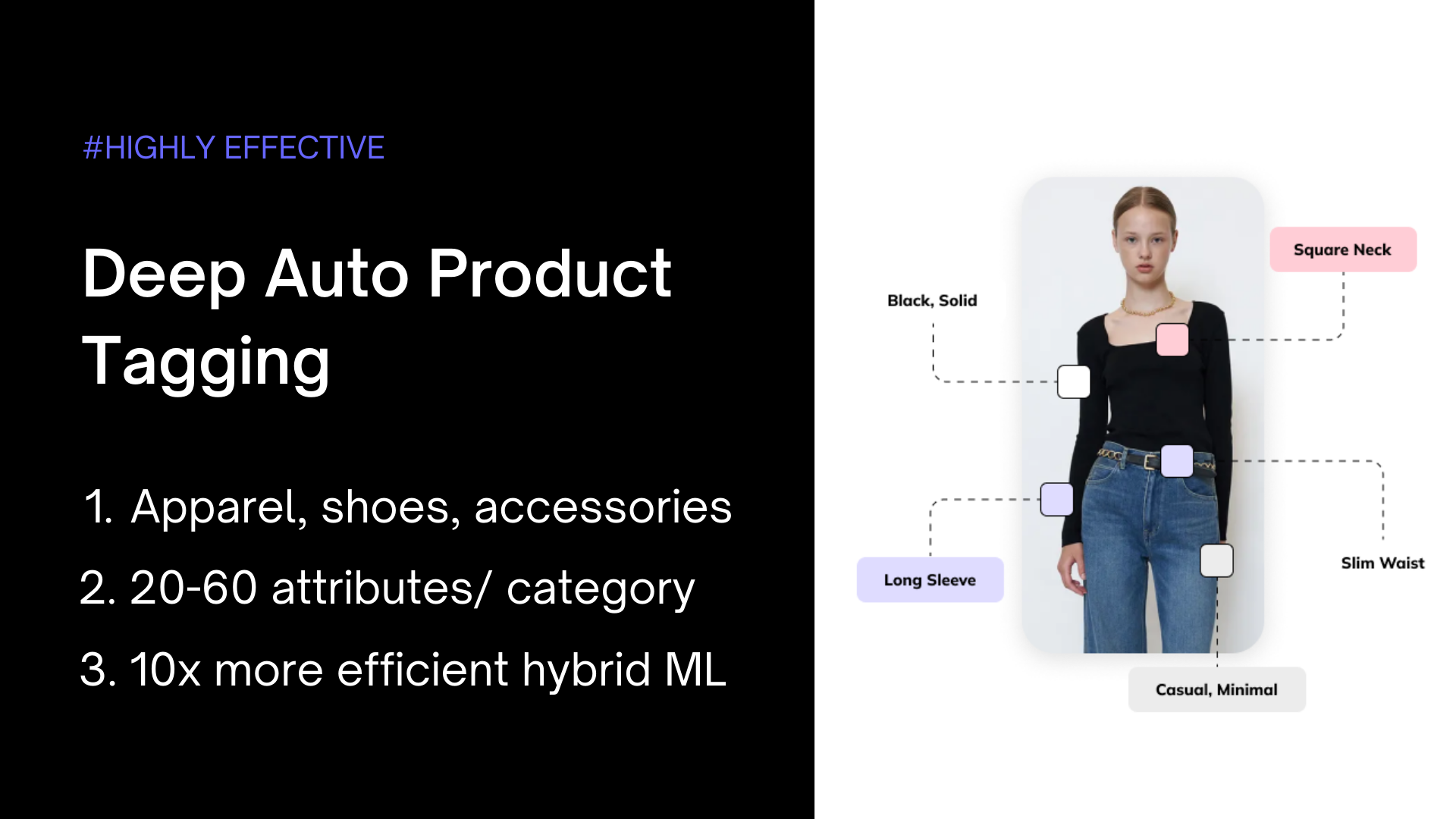
Quick start for your fashion startup: Dekas Lab is a fashion startup based in Spain. They’ve got a great idea to innovate online shopping but they first need metadata so they can experiment with their innovative shopping applications. Because they’re a startup, time is essential.
Dekas Lab was wise, and automated the process using YesPlz deep product tagging solutions. The result: getting thousands of product tags quickly, instead of hiring someone to label the data and review the quality, taking up time and more money.
The Problem: Writing a product description is time-consuming and repetitive when done manually. For retailers that are short-staffed or have too many products, creating product descriptions is overwhelming. Although it’s well-known that product descriptions are the basis for site search and discoverable SEO, who has time to create detailed ones?
The AI Solution: AI can recognize the key attributes, and craft a detailed, optimized product description in seconds. The beauty of using AI is its ability to write a description in endless tones of voice and styles, allowing us to offer dynamic product descriptions for a variety of users. An emotional product description? Fact-driven? Detailed about fabrics?
Shoppers can pick and choose different types of product descriptions, and AI can provide them easily.
The Problem: In traditional eCommerce filters, detailed searches often involve multiple steps and a maze of categories, leading to shopper overwhelm due to complexity of categories and navigation.
The AI Solution: Unlike traditional configuration processes, with AI, the entire process can be streamlined from tagging to multiple configurations. Because AI can tag from a product image, it doesn’t rely on product titles or descriptions, making the process of extracting rich product attributes for every product seamless.
Retailer Benefits: As a result of simplified processes, navigation is no longer a barrier to discovery, product details are no longer hidden from shopper search, and retailers have the foundation to build the advanced filters that make them stand out from competitors, like facets and subjective occasion filters.
The Problem: Standard search solutions don’t bridge the gap between shopper search expectations and the reality of search results–because fashion is a visual process, and all other standard retailer search is text-based. Shoppers are currently stuck with a poor overall search experience, with lack of product specifications and confusing text jargon.
The AI Solution: The Virtual Mannequin Filter is the AI first fashion product filter. Unlike a traditional text and checkbox filter, it offers a unique and super intuitive way for shoppers to filter their preferred product attributes on a virtual mannequin, making the discovery process visual. Text labels with visual cues are applied so shoppers are never confused by fashion terminology.
How Retailers Benefit: The Virtual Mannequin Filter allows users to discover completely new products that were previously buried in retailer catalogs, resulting in higher levels of engagement with the full product catalog and higher levels of satisfaction in fashion search.
And, most importantly, it created a sense of delight among frustrated users who are accustomed to experiencing search and filtering as a poor experience. As a completely unique, one-of-a-kind experience that memorably guides shoppers through fashion discovery in an intuitive, customizable experience.
W Concept has hundreds of thousands of products and a huge catalog ranging from apparel to shoes, earrings, and intimate wear.
Women’s tops alone have over 20,000 products, making it crucial that W Concept has a strong product discovery experience for their shoppers. Traditional filters don’t provide much lift to the user experience. With the Virtual Mannequin Filter, helping shoppers with intention to easily discover what they’re looking for leads to an increased average cart size that’s 1.7x higher.
W Concept was wise to plug-in out of box, AI-powered filters and test them out quickly for their shoppers instead of wasting time building an entire solution internally, which could be a flop.
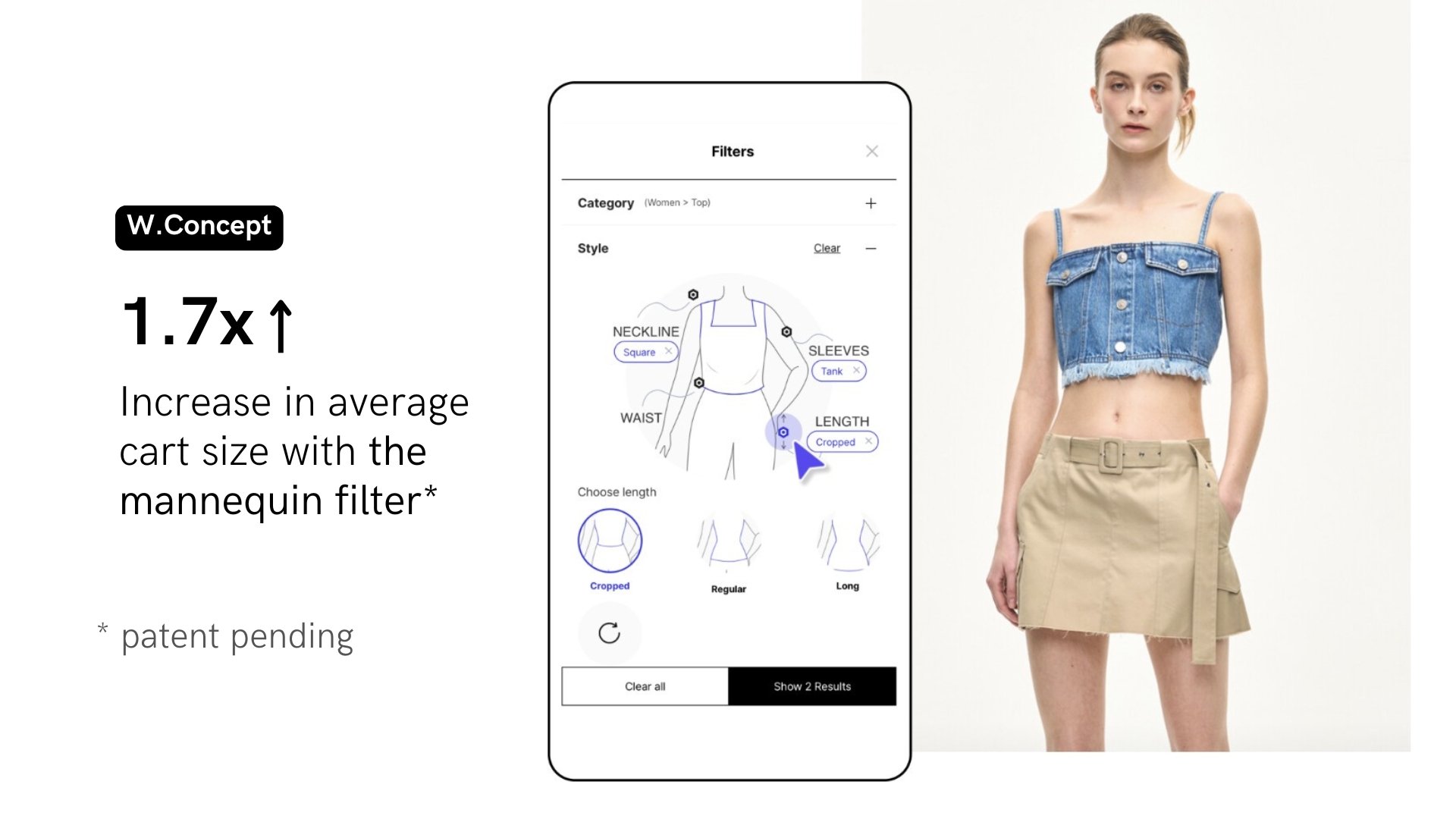
How W Concept Increased Average Cart Size by 1.7x with the Virtual Mannequin Filter
By integrating the Virtual Mannequin Filter, W Concept, a leading Korean fashion retailer saw an increase of average cart size by 1.7x.
The Virtual Mannequin Filter is successful in helping shoppers who have a search intention quickly and easily find more of their favorite products, adding more items to their cart. With visual cues that anyone can understand, the Virtual Mannequin Filter boosts shoppers’ ability to take control of their shopping experience, and filter by the attributes they know they want.
The Problem: Shoppers want to see a complete look, so they can style with different items and discover an entire outfit.
But the fashion world is complex. With so many styles and so many items to choose from, shoppers don’t have time to browse an entire product catalog and put the look together themselves. While human stylists have traditionally crafted beautiful looks, it simply isn’t scalable for retailers to use, when there are thousands of new products every week.
The AI Solution: analyzes various fashion elements, including clothing, accessories, colors, occasions, and styles to provide users with tailored recommendations, creating well-coordinated outfits.
Bonus: A shopper can give thumbs up and down for styling, and AI can quickly learn to modify the styling, running the next best matching items in the entire catalog–scalability that AI can do well.
Retailer Benefits: Complete the Look shows off the depth of retailer product catalogs, automatically, leading to more robust discovery of the entire catalog.
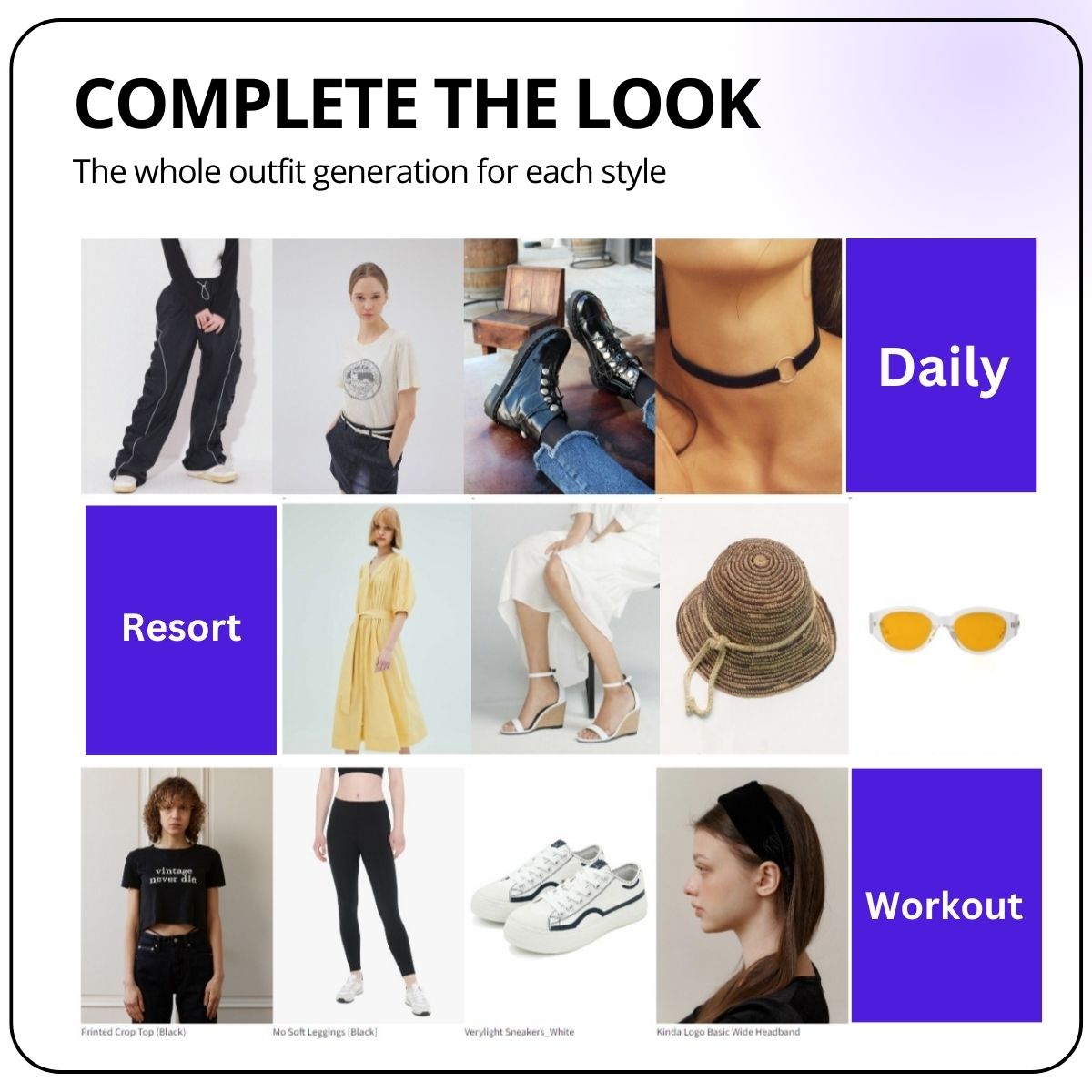
The Problem: Most similar recommendations in fashion don’t consider the “why” behind the recommendation–why are shoppers interested in a specific product? What’s the shopper’s search intent? Similar recommendations tend to fall short of inspiring shoppers.
The AI Solution:
Traditional similar recommendations have been matching similar product titles or the same brand which often leads to not-so-similar recommendations, ironically.
Now AI (specifically computer vision) can recognize image patterns and match similarities. More sophisticated AI analyzes the core attributes like silhouette, color group, pattern types, and even fashion vibe types such as formal vibe or casual vibe. This AI solution can ensure the recommendations look similar but somewhat different.
YesPlz is also always creatively thinking about how to innovate the product discovery and recommendation experience. With the YesPlz “Discovery of Taste,” a Tinder-style matching quiz, shoppers can discover their fashion style and get matching products delivered in a unique format.
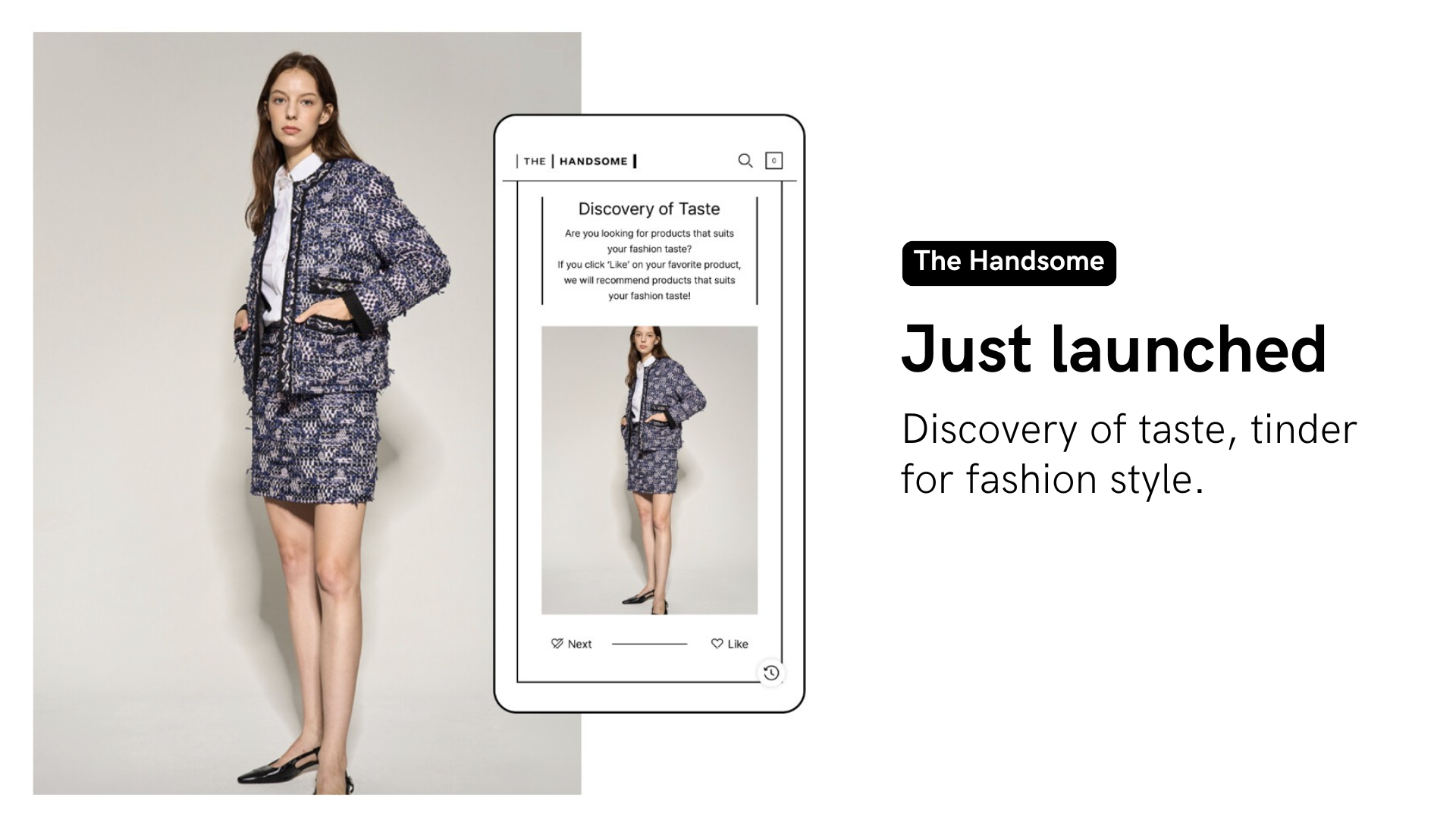
How Retailers Benefit: Without a powerful recommendation engine, retailers are missing out on valuable sales–that’s common knowledge. But, not all AI recommendations are the same, or are trained the same way. YesPlz AI specifically trains our AI to understand the ins and outs of fashion and can identify the best styles for shoppers throughout the journey.
Kolon Mall saw an immediate +15% increase in additional sales generated after implementing YesPlz product recommendations!
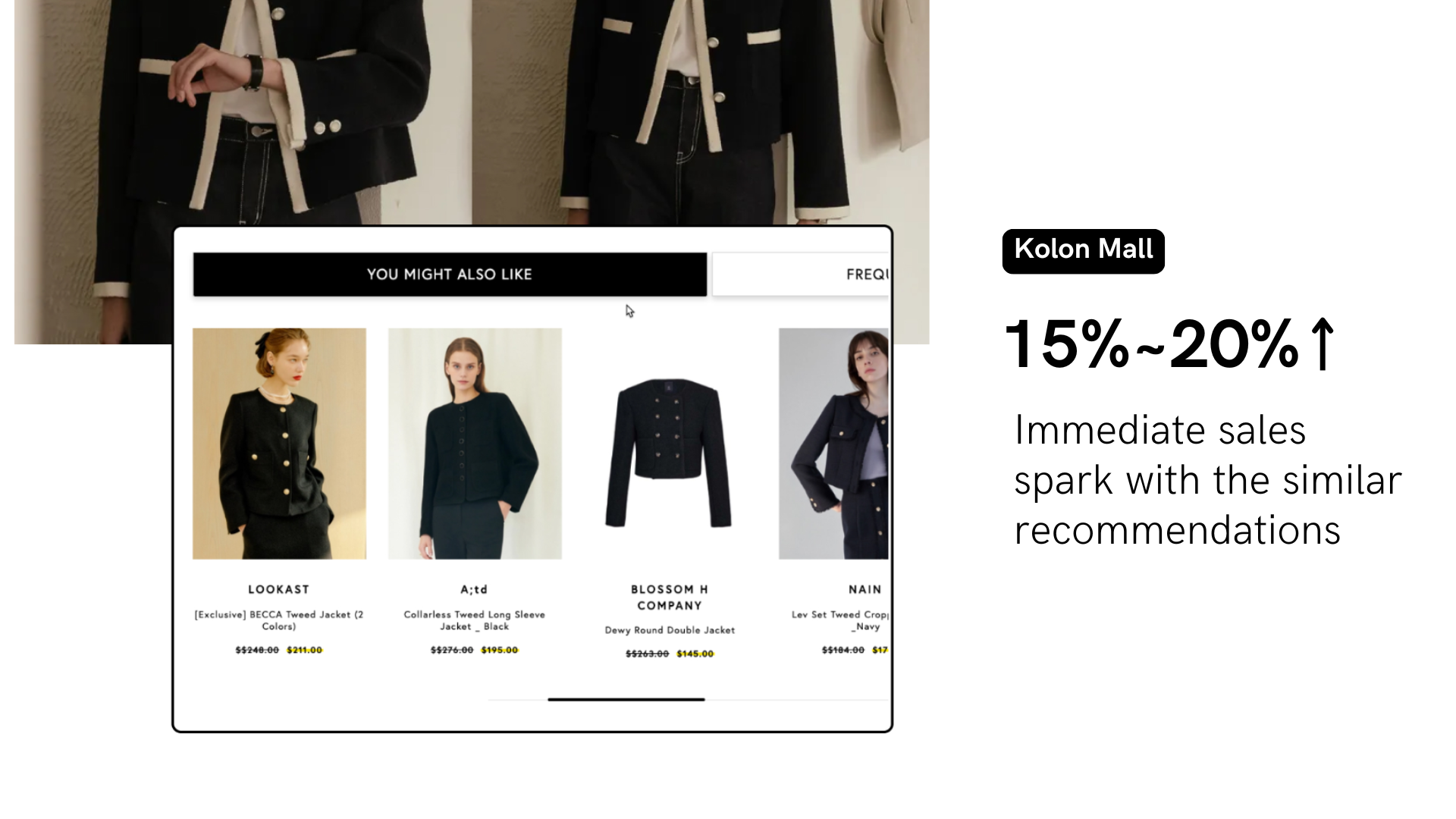
YesPlz's fashion-trained AI is a necessity for retailers who want to stand out from competitors.

Written by YesPlz.AI
We build the next gen visual search & recommendation for online fashion retailers
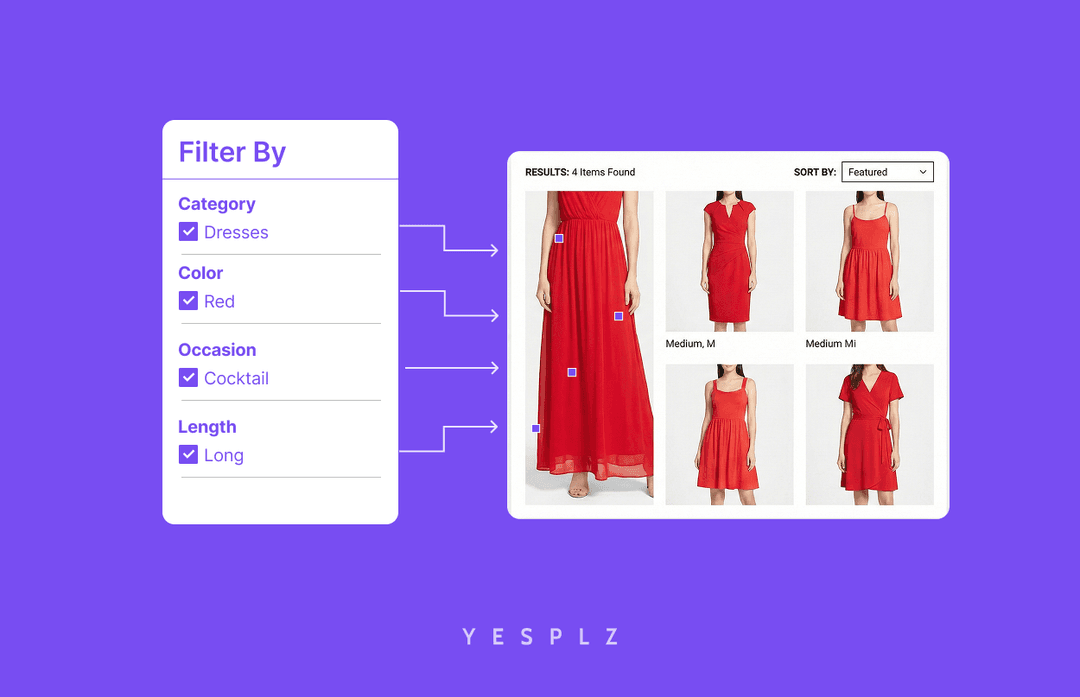
Stop losing sales to poor product filtering. Discover how AI simplifies creating Shopify filters, saving you 25-50 hours per 100 products.
by YesPlz.AI
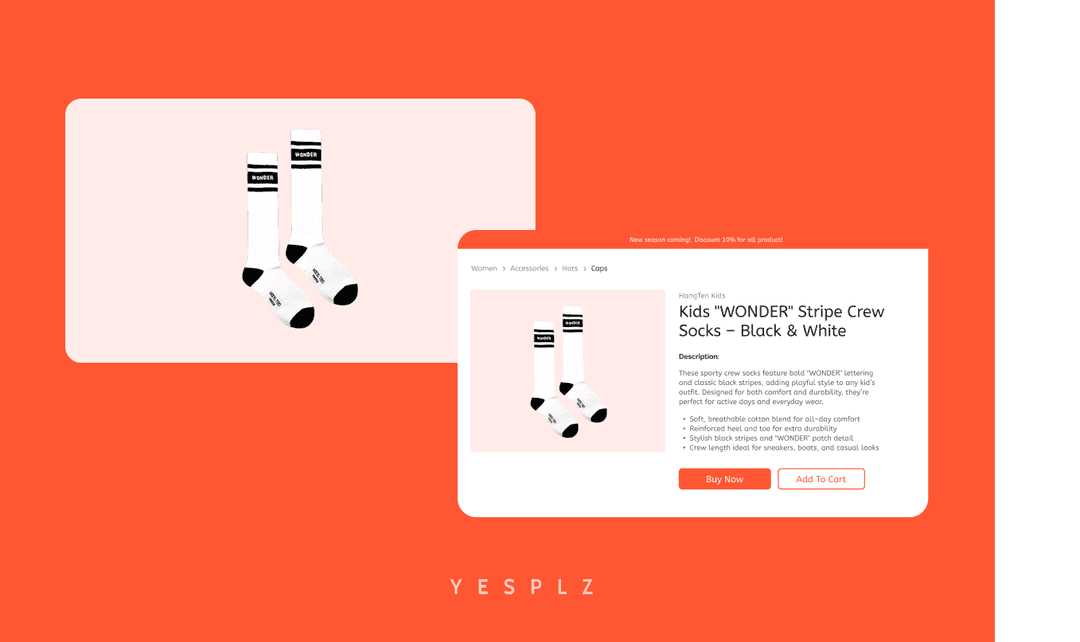
Automate Shopify product pages and cut 50–100 hours of manual work. AI generates product titles, descriptions, and metadata instantly from product images.
by YesPlz.AI